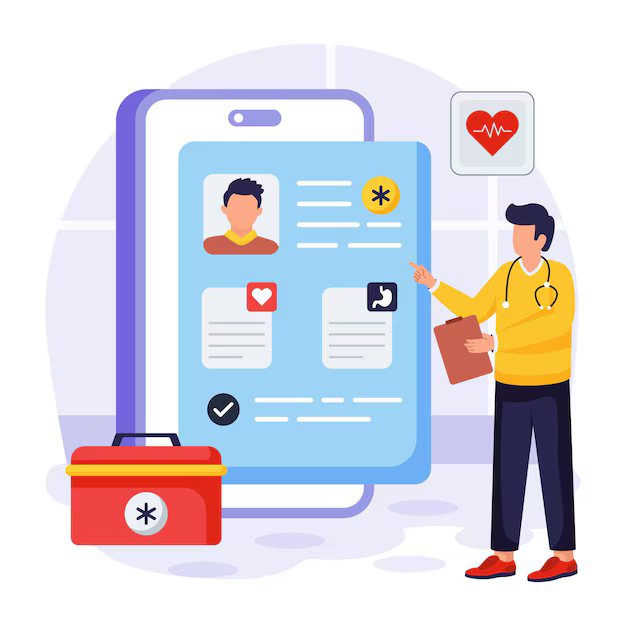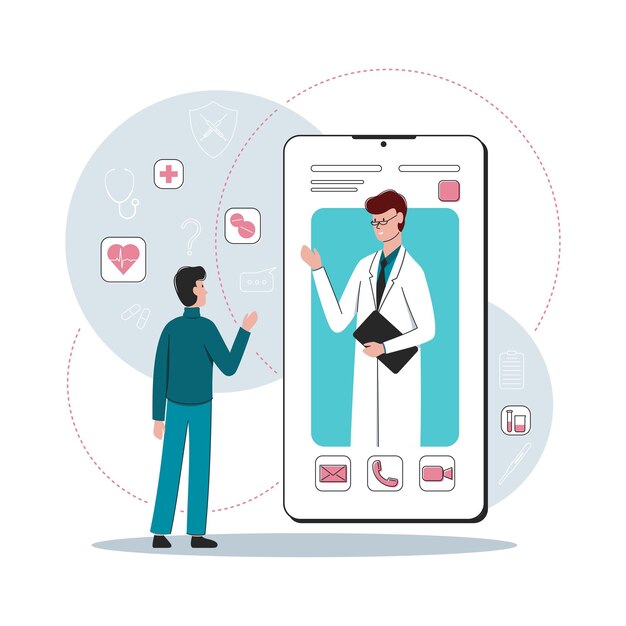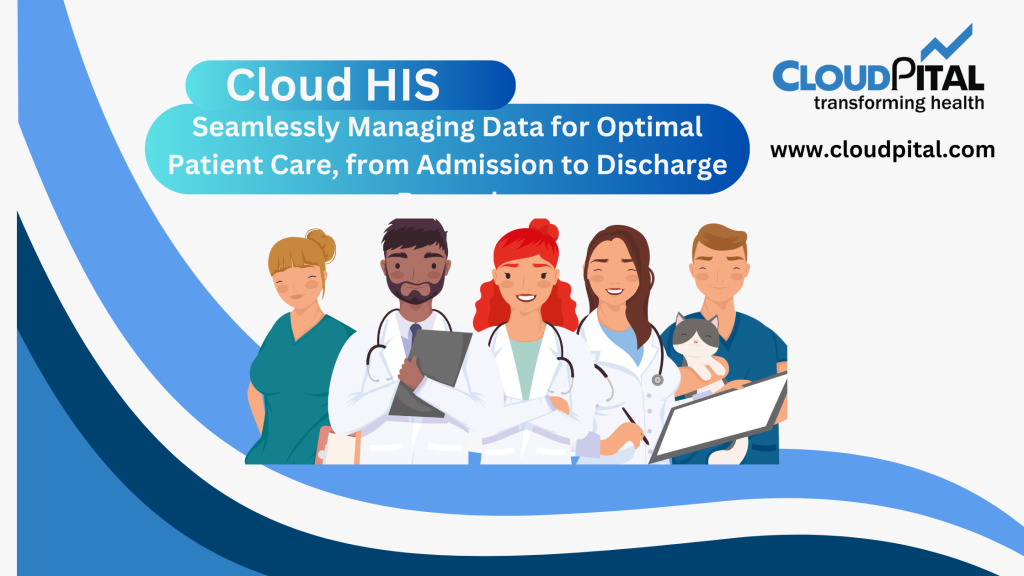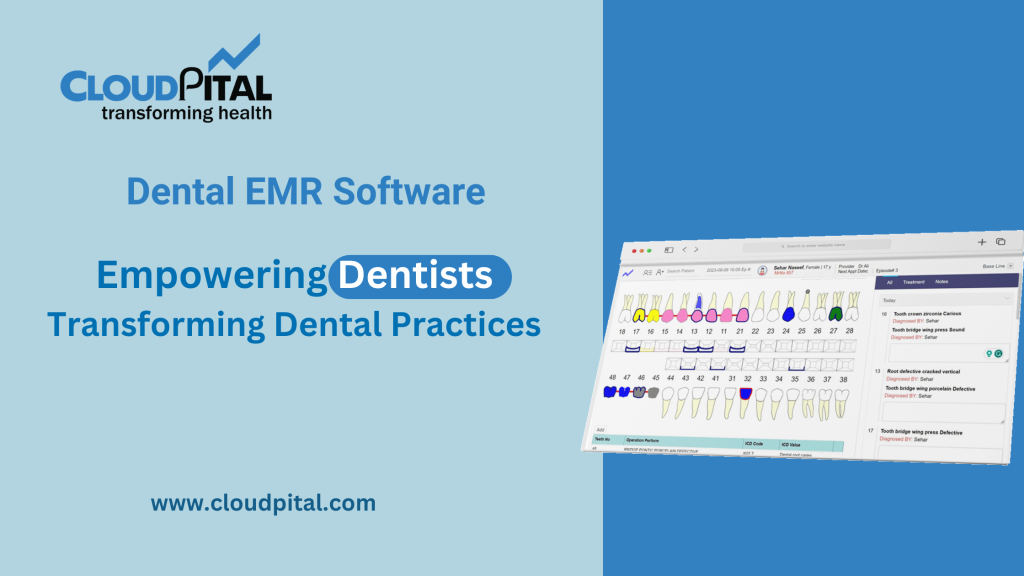Cloudpital # 1 is one of the top Mobile EHR with telemedicine and mobile health (mHealth) technologies leading the way towards more accessible, cost-saving, and efficient care. One of the leading technologies driving this revolution is Mobile Electronic Health Records (Mobile EHR). These systems enable healthcare providers to view and manage patient information using mobile devices, facilitating real-time communication with patients, even from distant locations. Specifically, Mobile EHRs are important in the provision of telemedicine services, which have gained considerable momentum, particularly since the COVID-19 pandemic.
Click to Start Whatsapp Chatbot with Sales
Mobile: +966547315697
Email: sales@bilytica.com
Cloudpital # 1 Mobile EHR

Telemedicine care enables healthcare providers to provide consultation, follow-up, and monitoring of patients at a distance without a face-to-face visit. With the combination of Mobile EHRs with telemedicine software, healthcare providers can provide an uninterrupted and streamlined care experience. In this blog, we shall discuss how Mobile EHRs improve telemedicine care, enhance patient outcomes, and automate healthcare workflows.
Real-Time Access to Patient Data
One of the core benefits of Mobile EHR is being able to retrieve patient records in real time almost anywhere. Whether the medical professional is remote, on the road, or conducting telemedicine consultations from home, a Mobile EHR system enables them to rapidly access and update patient data on their mobile units.
During a telemedicine visit, the practitioner is able to view the patient’s entire health history, including medications, lab tests, imaging studies, allergies, and previous diagnoses. Having access to this information allows the visit to be informed and thorough, enabling the practitioner to make proper diagnoses and treatment plans even without seeing the patient in person.
For instance, a telemedicine visit for a patient with a chronic illness such as diabetes can be enriched by Mobile EHR access to the patient’s recent blood sugar readings, medication changes, and prior treatment plans in real-time. This real-time access to patient data enables clinicians to provide individualized advice and follow-up guidance during the telemedicine visit.
Enhanced Communication and Collaboration
Good communication is the foundation of excellent healthcare, and Mobile EHRs have an important part to play in enhancing communication among healthcare professionals, experts, and patients. When combined with telemedicine services, Mobile EHRs facilitate easy transfer of patient data between various caregivers, either within the same facility or in distant corners of the globe.
For example, a family doctor performing a telemedicine visit can easily consult with a specialist through the Mobile EHR system. They can exchange the patient’s medical history, laboratory test results, and other required information, which allows the specialist to give immediate feedback or arrange follow-up treatment for the patient, all without requiring the patient to travel.
In addition, Mobile EHRs usually integrate secure messaging tools in the system. This allows for providers to talk to patients outside of telemedicine sessions, provide reminders for subsequent care, and share test results. Through these continuous communications, patients feel engaged and well-adviced despite not being in a healthcare environment.
Improved Workflow Efficiency
Telemedicine consultations might be time-consuming at times, particularly if healthcare providers must access patient information manually or update patient information manually. Mobile EHRs play a role in such cases. By making the documentation process faster and blending it with telemedicine services, Mobile EHRs increase the workflow efficiency of healthcare providers.
Mobile EHR systems also typically have voice-to-text capabilities, enabling providers to dictate patient notes into the system while conducting telemedicine consultations. This minimizes time spent on manual entry and allows for capturing all required patient details in a jiffy. Mobile EHRs also automatically populate patient records with information regarding each telemedicine consultation, which is both up-to-date and accurate for future access.
For instance, following a telemedicine visit with a patient, a physician can quickly modify the patient’s care plan, order prescriptions, and schedule follow-ups—all from a mobile device. This streamlined integration saves time for both patients and healthcare providers and makes for an easier experience.

Remote Monitoring and Follow-Up Care
Telemedicine is not just virtual consultation; it includes remote patient monitoring (RPM), which enables healthcare professionals to monitor patients’ health information at all times and provide proactive treatment. HIS form the backbone of remote monitoring because they enable healthcare professionals to capture, monitor, and analyze patients’ information from diverse sources such as wearable sensors and mobile health applications.
For example, a patient with high blood pressure using a wearable blood pressure device can get their readings transmitted automatically to their Mobile EHR. Healthcare professionals can then monitor the information and adjust treatment regimens according to the patient’s actual-time readings. Another example is a patient with chronic diabetes who can use a glucose meter device that connects to their Mobile EHR, giving continuous feedback to their healthcare professional.
The remote monitoring of patients and the real-time-based adjustment of care plans are strong tools for enhancing the management of chronic diseases. They also eliminate the necessity of too many in-person visits, thus improving access and affordability of care.
Compliant and Secure Patient Data
One of the most important issues with telemedicine is patient data security and privacy. Mobile EHR systems are developed with the utmost standards of data security in mind, to ensure that patient data is secure during telemedicine consultations. These systems are usually compliant with rules and regulations like HIPAA (Health Insurance Portability and Accountability Act) in the US, which enforces rigorous standards of data privacy and security in healthcare.
Mobile EHRs employ end-to-end encryption, authenticated secure protocols, and access control to protect patient information. This ensures that information is accessible only to authorized individuals—like the healthcare provider and the patient—while consulting virtually.
In addition, Mobile EHRs also offer audit trails to monitor access to patient information. This openness allows healthcare organizations to monitor data security, investigate possible breaches, and maintain compliance with applicable regulations. The incorporation of secure data management capabilities into telemedicine services gives both healthcare providers and patients peace of mind that sensitive health information is being safeguarded.
Patient Engagement and Convenience
Patients also enjoy the integration of Mobile EHRs with telemedicine services. Mobile access to EHRs enables patients to become active players in their health. Patients can access their medical records, browse previous consultations, and monitor their health progress—through their mobile phones.
For instance, following a telemedicine session, patients can access their Mobile EHR to read the physician’s advice, view educational resources, or arrange follow-up appointments. Certain Mobile EHR solutions also offer such features as secure messaging, whereby patients can send follow-up questions or request medication between telemedicine consultations.
By making the patient’s health information readily accessible, Mobile EHRs help facilitate patient engagement and subsequently improved outcomes. In addition to that, telemedicine consultations are also convenient since the patient can receive treatment from the convenience of their own home, reducing tedious travel to healthcare centers.
Cost-Effectiveness and Time Efficiency
Together, Mobile EHRs and telemedicine enhance patient care while also lowering the cost of healthcare. Telemedicine decreases the necessity of on-site visits, which can be especially useful for patients with rural or underserved conditions who might otherwise have trouble accessing treatment. With the implementation of Mobile EHRs within telemedicine platforms, healthcare practitioners can provide consultations at a reduced price while maintaining quality care.
For healthcare providers, Mobile EHRs minimize administrative burden through automated processes like appointment scheduling, billing, and documentation. This time-saving effectiveness enables more patients to be seen and attention given to delivering care instead of paperwork.
Telemedicine for Mental Health Services
EMR systems have also played a key role in enabling telemedicine services for mental healthcare. As the need for mental health care increased with the pandemic, telemedicine emerged as a go-to tool for offering therapy and counseling services remotely.
With Mobile EHRs, mental health professionals are able to conveniently monitor patient progress, revise treatment plans, and safely communicate with patients. Mental health patients typically need constant therapy, and Mobile EHRs make sure that professionals are able to keep up with their progress and modify interventions accordingly without needing constant face-to-face visits.
Conclusion
With the development of telemedicine, Mobile EHR systems integration is defining the future of healthcare delivery. By providing real-time access to patient information, enhancing healthcare provider communication, and allowing remote monitoring, Mobile EHRs improve the quality and efficiency of telemedicine care. Patients experience more personalized treatment, increased convenience, and better engagement, while healthcare providers experience streamlined processes, enhanced collaboration, and increased security.
Looking to the future, the convergence of Mobile EHRs with telemedicine services will further propel the digital revolution of healthcare, enhancing patient access to care and health outcomes globally. For routine consultations, chronic disease management, or mental health services, Mobile EHRs are leading the charge in delivering quality care remotely, making healthcare more accessible, efficient, and patient-focused than ever.
Click to Start Whatsapp Chatbot with Sales
Mobile: +966547315697
Email: sales@bilytica.com
How does Mobile EHR facilitate telemedicine services? similar software solutions prices were updated on 2025-05-01T00:44:56+00:00 in Saudi Arabia in Mecca, Medina, Riyadh, Khamis Mushait, Yanbu, Jeddah, Dammam, Unaizah, Uqair, Ha’il, Ta if, Al Bahah, Dhahran, King Abdullah Economic City, Najran, Diriyah, Qatif, Khafji, Jubail, Abqaiq, List of Cities and Towns in Saudi Arabia, Ras Tanura, Turubah, Jazan Economic City, Knowledge Economic City, Medina, Khobar, Abha, Tabuk, Saudi Arabia, similar software solutions prices were updated on 2025-05-01T00:44:56+00:00 We also provide in Saudi Arabia services solutions company in Hafar Al-Batin, Udhailiyah, Al-Awamiyah, Hofuf, Hautat Sudair, Buraidah, Tayma, Duba, ‘uyayna, Saihat, Al-Kharj, Al-ula, Jizan, Rumailah, Ar Rass, Arar, Shaybah, Al Majma’ah, Rabigh, Dhurma, Haradh, List of Saudi Cities by Gdp Per Capita, Badr, Sudair Industrial City, Baljurashi, Shaqraa, Al-Khutt, Habala, Ad Dawadimi, Dawadmi, Layla, similar software solutions prices were updated on 2025-05-01T00:44:56+00:00 Price is SAR 100 and this was updated on updated on 2025-05-01T00:44:56+00:00 similar How does Mobile EHR facilitate telemedicine services? software solutions prices were updated on 2025-05-01T00:44:56+00:00 in Saudi Arabia in Haql, Afif, Al-Abwa, Farasan, Al-Jaroudiya, Thadig, Al-Thuqbah, Al Wajh, Almardmah, Al-Zilfi, Muzahmiyya, Prince Abdul Aziz Bin Mousaed Economic City, Tharmada’a, Skaka, Um Al-Sahek, Sharurah, Tanomah, Bisha, Dahaban, Al Qunfudhah, Qurayyat, Saudi Arabia, Ha’ir, as Sulayyil, Al Lith, Turaif, Al-Gway’iyyah, Samtah, Wadi Ad-Dawasir, Az Zaimah, Safwa City, Jalajil, Harmah, Mastoorah, Hotat Bani Tamim, Jabal Umm Al Ru’us, Rafha, Qaisumah, Al-Ghat, Hajrah, Al-Hareeq. Excerpt: Jeddah (also spelled Jiddah, Jidda, or Jedda; Arabic: Jidda) is a Saudi Arabian city located on the coast of the Red Sea and is the major urban center of western Saudi Arabia similar software solutions prices were updated on 2025-05-01T00:44:56+00:00 Price is SAR 100 and this was updated on updated on 2025-05-01T00:44:56+00:00



